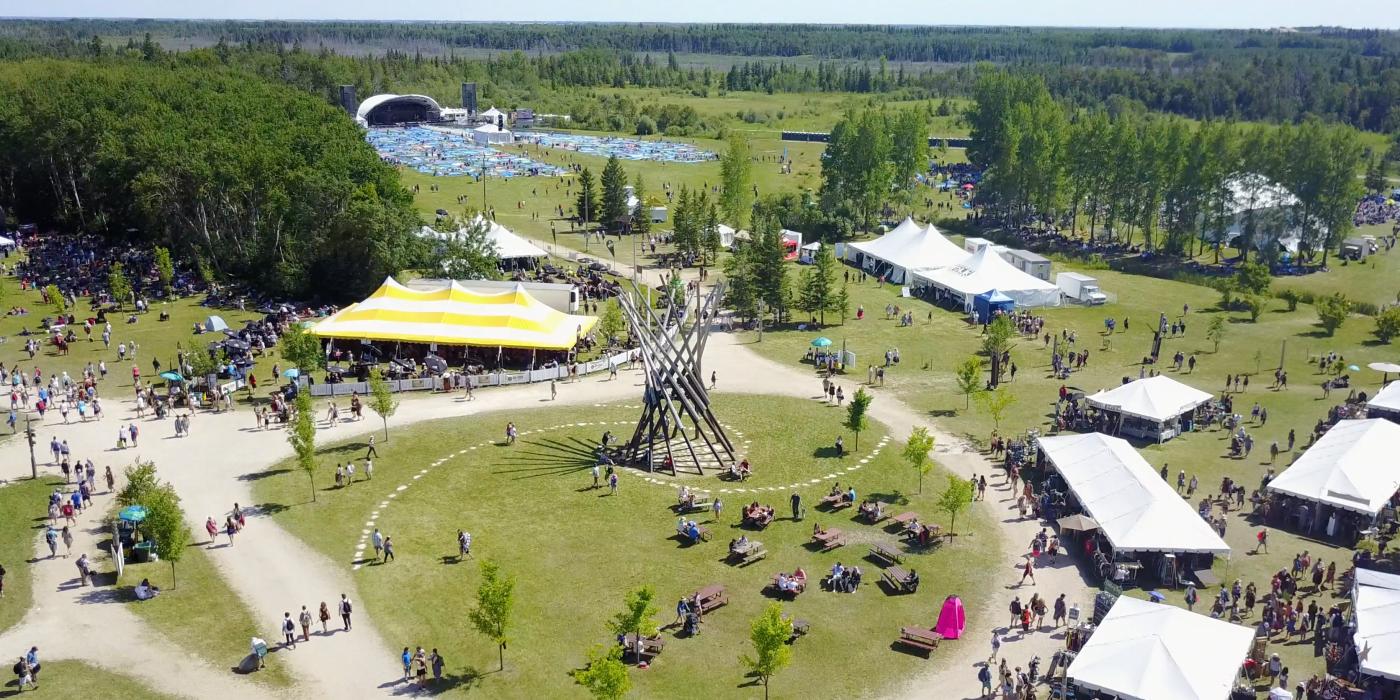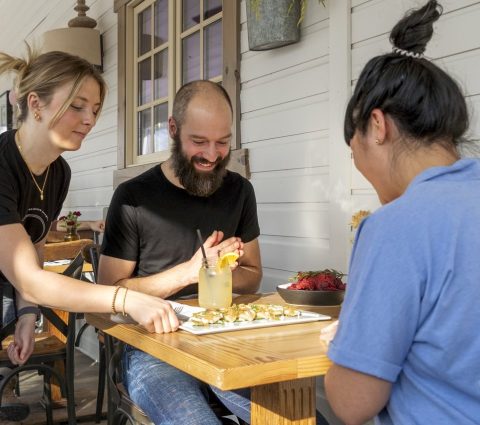- Things To Do
- Events
- Food & Drink
-
Places To Go
- Winnipeg
- Churchill
- Eastern Region
- Central Region
- Interlake Region
- Parkland Region
- Western Region
- Manitoba North
- Must-See Destinations
-
Itineraries
- Island Getaway on the Prairies
- Wheat City Wanderings in Brandon
- Escape to the water and the wild
- St. Boniface Winter: Passion and History
- Follow the path to a story in Neepawa
- Unleash your inner Viking this winter
- Explore Clear Lake this winter like never before
- Breathe in the Whiteshell this winter
- Go North for a boreal forest escape
- Treaty Areas
- Where To Stay
- Trip Essentials
- #ExploreMB Blog
Navigation Options
- FREN
- Things To Do
- Events
- Food & Drink
-
Places To Go
- Winnipeg
- Churchill
- Eastern Region
- Central Region
- Interlake Region
- Parkland Region
- Western Region
- Manitoba North
- Must-See Destinations
-
Itineraries
- Island Getaway on the Prairies
- Wheat City Wanderings in Brandon
- Escape to the water and the wild
- St. Boniface Winter: Passion and History
- Follow the path to a story in Neepawa
- Unleash your inner Viking this winter
- Explore Clear Lake this winter like never before
- Breathe in the Whiteshell this winter
- Go North for a boreal forest escape
- Treaty Areas
- Where To Stay
- Trip Essentials
- #ExploreMB Blog

Here's how seven tourism companies and attractions put into action all sorts of sustainability initiatives to ensure that they - and the unique corner of Manitoba they occupy - are around for future generations to enjoy.
The Forks, Winnipeg
Green by design: Most of the millions of people who visit The Forks each year come for the food, the craft beer, the entertainment, and the river views. What they don't realize that the province's oldest gathering place also happens to be the most modern when it comes to sustainability. Target Zero is The Forks' ambitious commitment to the environment (zero garbage, zero waste water, zero carbon emissions), and one of the destination's most impressive design feats is the nearly century-old market building retrofitted with a geothermal heating and cooling system.
Eco in action: The Forks recognizes that 80% of their waste from market vendors and on-site restaurants is compostable, so they've installed a very sophisticated Biovator (an in-vessel composter) on-site to put all that waste to good use in their gardens. When it comes to recycling, they're on top of that, too. Did you know that the Zamboni that maintains the world-famous Nestaweya River Trail is fueled by wasted vegetable oil from the food vendors?
Advancing the cause: The Forks is so committed to educating the public that they offer eco-theme field trips for school-aged kids that takes curious minds around their property to see and touch urban sustainability in action.
Churchill Northern Studies Centre, Churchill
Green by design: Churchill Northern Studies Centre has been around since 1976 as a non-profit field station dedicated to research and education in the subarctic. In 2011, it moved into its new facility located 20 kms east of town: a stunning, two-storey structure built to LEED Gold certification standards. Notable design features of the CNSC include loads of natural light permeating 90 percent of the interior space, and a solar wall that heats incoming ventilation air.
Eco in action: In 2017, CNSC brought a Growcer to Churchill, a 40-ft shipping container outfitted with hydroponic gardening equipment that supplies the northern community with leafy kale, chard, lettuce and herbs per week. CNSC affectionately calls this gardening and community-shared agriculture program Rocket Greens, a nod to the centre's location on Churchill's abandoned rocket research range site.
Advancing the cause: CNSC hosts over 100 researchers and scientists per year studying arctic animals such as polar bears, belugas and wolves, as well as plants, birds and the northern lights. Travellers with a keen interest in science can learn directly from these experts on CNSC's year-round learning vacations.
Winnipeg Folk Festival, Birds Hill Provincial Park
Green by design: The city's beloved 4-day music/camping/dancing/prairie summer celebration won the 2018 Clearwater Award at the International Folk Music Awards, which is awarded to a festival that demonstrates an outstanding commitment to sustainable event production and environmental stewardship. Winnipeg Folk Festival operates on a 'leave no trace' principle, and thus has very strong initiatives around recycling, composting, and waste water management.
Eco in action: In 2014, Winnipeg Folk Festival stopped selling plastic bottled water on site, and asks everyone to bring a refillable water bottle to the festival. It also encourages alternative means of transportation to the festival site, be it mass transportation aboard the Folk Fest Express bus, or active transportation through its Bike Ride to Site program.
Advancing the cause: LOFT (local, organic, and fair-trade) is WFF's food philosophy (and trust us, if you don't go for the music, go for the food!), and you see the commitment to sustainable food choices on the menu of food vendors on site and in the campground and at the backstage kitchen, La Cuisine, that feeds all the performers and thousands of volunteers.
Green by design:
Turtle Village is an Indigenous-owned glamping operation in Wasagaming campground in Riding Mountain National that connects nature lovers to the good life: Minobimaadiziwin. The eight 'turtle shells' are fully off-grid tiny homes, powered by solar panels and battery to provide interior LED lighting and a 12-volt plug for charging electronics. The turtle shells are open-year round, heated by propane heaters in the colder months.
Eco in action: Owner Ashley Smith's mission is to protect the environment and be mindful of waste. She designed the turtle shells with long-lasting materials that require less maintenance and repairs over the long term. As well, she reduced building material waste by using pre-engineered metal panel systems for exterior walls, roof, and floor.
Advancing the cause: Turtle Village is the first Indigenous-owned business to operate within Riding Mountain National Park, which is traditional territory of seven Anishinaabe First Nations. Within its first year of operation, Turtle Village has already expanded its experiences to include ice fishing on Clear Lake in large canvas tents heated by woodstove, complete with pre-drilled fishing holes, gear, a coffee and hot chocolate station, and bannock-over-the-fire kits.
Frontiers North Adventures, Churchill
Green by design: A leader in Manitoba's tourism industry since 1987, Frontiers North Adventures specializes in wildlife and northern lights adventures in Churchill, the polar bear capital of the world. Known for their customized vehicle, the Tundra Buggy®, Frontiers North launched a new Electric Vehicle Tundra Buggy® in fall of 2021. The EV Tundra Buggy emits zero emissions and minimal sound, providing a less-intrusive experience for the polar bears and the thousands of guests who travel from around the world to northern Manitoba to see them in the wild.
Eco in action: As Canada's only B Corp™ Certified adventure travel operator, Frontiers North Adventures is committed to reducing greenhouse gas emissions and plans to convert their entire fleet of 12 Tundra Buggies from diesel to electric power before the end of the decade. In transforming their remaining Tundra Buggy fleet, Frontiers North Adventure's GHG emissions can be reduced by more than 3,600 tonnes of carbon dioxide over the next 25 years.
Advancing the cause: Frontiers North Adventure's Tundra Buggy® fleet also includes Tundra Buggy One, the research vehicle for Polar Bears International, the only nonprofit dedicated solely to polar bears and the Arctic sea ice. Through this partnership, Tundra Buggy One hosts scientists as well as Polar Bear Live Cams powered by explore.org, the largest live nature network in the world, reaching millions of viewers.
Falcon Trails Resort, Whiteshell Provincial Park
Green by design: Falcon Trails Resort, a cabin-in-the-woods operation run by the Christie/Hamilton family, is known for their collection of idyllic waterfront cabins in the Whiteshell, but none are more desirable than their six outpost High Lake luxury eco cabins. The High Lake eco cabins are built using reclaimed or local materials, powered by solar energy, and outfitted with state-of-the-art compostable toilets.
Eco in action: Each High Lake cabin has its own design personality thanks to alternative construction methods such as straw bale insulation and live edge timber frames. The remote nature of High Lake mean that guests hike 2.5 km through the boreal wilderness to get to their cabin door.
Advancing the cause: Falcon Trails Resort, and its winter ski hill operation Falcon Ridge Ski Slopes, are so dedicated to life in the forest that they conduct various events throughout the year to make the outdoors accessible to everyone. For example, their Forest Club is a way for children to connect with the land. Activities include fire-making, quinzee building, ice fishing and more.
Oak Hammock Marsh Interpretive Centre, Stonewall
Note: The Wetlands Discovery Centre is currently closed for renovations. Trails and grounds are still open to the public.
Green by design: Oak Hammock Marsh educates nearly 100K visitors each year on the importance of the wetlands ecosystem for providing flood control, water quality protection and habitat for wildlife. The eye-catching wetlands discovery centre was designed to blend right into its Interlake surroundings: limestone quarried in Stonewall is used for the building facade, and the green 'living' roof is landscaped with native grasses and plants that provide habitat for nesting birds and temperature control for the building.
Eco in action: Sustainable design continues throughout the 36-square-kilometer property. There is a 3-cell lagoon system for treating waste water from the interpretive centre, elevated boardwalks to reduce impact on the marsh, and a trail system designed on an existing dyke system.
Advancing the cause: Oak Hammock is so committed to providing youth hands-on learning about this unique ecosystem that it has developed school programming such as 'critter dipping' 'birding walks' and 'ecology games.' 'A Bird in the Hand' program allows visitors of all ages to connect with nature by banding and tracking songbirds.

